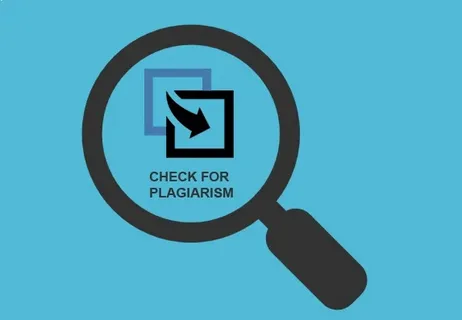Top 5 Qualities of a Trusted Software Architecture Outsourcing Vendor

In today’s fast-paced digital landscape, outsourcing software architecture has become a strategic move for businesses looking to accelerate product development and ensure scalability. However, choosing the right vendor is a high-stakes decision that can directly impact a project’s outcome. With countless providers claiming expertise, it’s essential to look beyond sales pitches and examine the fundamental qualities that make a software architecture outsourcing vendor truly trustworthy. This article delves into the top five qualities you should evaluate before committing to a partnership. Get insights into vendor selection for software architecture outsourcing to ensure project success.
Proven Experience in Scalable System Design
One of the first things to look for in a trusted outsourcing vendor is a track record of successfully designing scalable systems. Scalability is more than just a buzzword—it’s a technical necessity for businesses expecting growth, user influx, or evolving operational needs. A vendor with proven experience will have a strong portfolio featuring projects that grew over time without architectural failure.
Experienced vendors understand when to employ microservices over monoliths or when to integrate cloud-native capabilities for elasticity. They can anticipate scalability issues before they occur and design systems that adapt smoothly to changing demands. You should see clear evidence that their architecture decisions are informed by performance benchmarks, real-world use cases, and up-to-date industry practices.
Scalable systems aren’t just about the right tech stack—they also depend on how data flows, how modules are decoupled, and how fault tolerance is embedded. A seasoned outsourcing vendor doesn’t only code—they architect with an eye toward long-term resilience and flexibility.
Deep Technical Expertise and Modern Tech Stack Familiarity
Another defining quality of a reliable outsourcing partner is their deep technical expertise coupled with familiarity with modern, ever-evolving tech stacks. They should be able to demonstrate command over backend and frontend technologies, cloud platforms, DevOps tools, and security protocols. This expertise ensures they can make informed decisions across various components of the system architecture.
What separates a trusted vendor from the rest is not just knowledge of current technologies but their ability to choose the right ones for the project. An expert outsourcing partner won’t just jump on the latest trend; they will analyze the project requirements, budget constraints, and performance expectations to recommend the most suitable stack.
They should be confident in guiding your team through architectural decisions—whether it’s adopting serverless frameworks for a lightweight solution or container orchestration tools like Kubernetes for managing complex deployments. Their understanding must extend into technical debt management, CI/CD pipelines, automated testing strategies, and compliance requirements.
By being aligned with modern tools and frameworks, a capable vendor ensures that your product remains robust and future-ready, reducing the risk of costly architectural overhauls down the road.
Transparent Communication and Collaborative Mindset
A strong technical foundation means little if the vendor lacks transparency and effective communication. Collaboration is at the heart of any successful outsourcing arrangement. Trusted vendors prioritize clear, consistent, and transparent communication from the very first engagement. This includes setting realistic timelines, explaining trade-offs, sharing progress updates, and being upfront about challenges.
They treat clients as partners rather than mere customers. From requirement gathering to architectural reviews and iteration planning, they make sure your stakeholders are actively involved. They adopt a collaborative mindset that blends their technical acumen with your domain knowledge, resulting in well-informed architectural decisions that align with business goals.
Top outsourcing vendors employ agile methodologies to foster ongoing collaboration. They use tools like Jira, Slack, and Confluence to keep you in the loop and promote real-time interactions. Moreover, they conduct regular sprint reviews and retrospectives, ensuring that feedback is always integrated into the next iteration.
Beyond technical documentation, they communicate design choices in a language you understand. A trusted vendor explains how a proposed architecture meets your scalability needs, reduces costs, or accelerates delivery—empowering you to make confident decisions.
Commitment to Quality Assurance and Risk Mitigation
In software architecture, quality cannot be an afterthought—it must be embedded from the ground up. Trusted outsourcing vendors place strong emphasis on quality assurance (QA) practices and proactive risk mitigation. They understand that architectural flaws, once embedded, can cascade into larger system failures and tech debt.
To mitigate this, reliable vendors implement architectural validation strategies early in the development lifecycle. This includes load testing, code reviews, threat modeling, and static analysis to validate architectural choices before full-scale development begins. They also use architecture decision records (ADRs) to document every significant design decision, making future troubleshooting and evolution easier.
High-quality vendors don’t wait for bugs to be reported post-deployment. They build with fail-safes, monitoring tools, and alerting systems that keep the architecture resilient and secure. Security best practices—such as role-based access control (RBAC), encryption, secure APIs, and audit trails—are baked into the architecture, not bolted on at the end.
A serious commitment to quality also extends to their hiring and internal review processes. They recruit seasoned architects, invest in ongoing training, and promote peer reviews and cross-team audits to raise the bar. In short, they don’t just deliver software—they ensure it meets the highest standards of performance, security, and maintainability.
Flexibility to Adapt and Long-Term Partnership Potential
The software development journey rarely follows a straight line. Priorities shift, market conditions evolve, and technical requirements may change midstream. A trusted outsourcing vendor isn’t just technically proficient—they’re also adaptable, responsive, and committed to the long haul.
You want a partner who doesn’t panic when unexpected changes arise. Whether it’s a pivot in your product roadmap, a sudden scale-up, or integration with a new API, they should be able to re-architect parts of the system with minimal disruption. Flexibility is a key indicator of maturity—it shows they’re solution-oriented rather than rigid followers of a contract.
A trustworthy vendor aims to build a long-term relationship, not just close a deal. They proactively identify opportunities to improve the architecture, introduce automation, or reduce infrastructure costs. So, They think beyond the current deliverable and offer roadmaps for future improvements—whether that involves reusability, modular design, or advanced data strategies.
They also plan for maintenance and future upgrades, offering post-launch support that ensures your system remains reliable and current. By aligning themselves with your business outcomes, such vendors become strategic allies who add value beyond coding—they future-proof your software infrastructure.
Conclusion
Choosing the right software architecture outsourcing vendor can make or break your project. It’s a decision that requires careful consideration of more than just pricing and availability. A truly trusted partner brings a blend of proven scalability, deep technical know-how, transparent communication, rigorous quality standards, and the agility to grow with your business.
By aligning with such a vendor, you not only ensure a robust software foundation but also gain a strategic partner who contributes to your long-term success. The right outsourcing relationship is not transactional—it’s transformational. When you focus on these five core qualities, you equip your business with the technical strength and collaborative power to navigate an ever-evolving digital world confidently.











